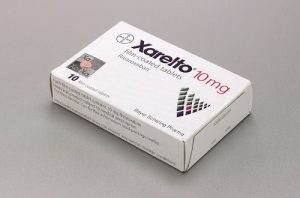
Pregnancy test pill used through 60s & 70s connected with birth defects
pharmafile | March 20, 2017 | News story | Medical Communications, Sales and Marketing | Bayer, Primodos
A pregnancy test, named Primodos, which was taken by 1.5 million British mothers and was linked to birth defects, may have had its side-effects covered up. An investigation by Sky News, found that UK health officials had reported that there was a link to birth defects but had then destroyed the evidence.
The medication was produced by Schering, now owned by Bayer, and was taken to reveal whether a woman was pregnant. Primodos was thought to work by either inducing menstruation in women who were not pregnant but, in those who were, it was thought it would be absorbed by the body. In reality, the drugs were a powerful form of oral contraceptive – made up of 10mg of norethisterone and 0.2mg of ethinylestradiol. This equates, in terms of strength of dose, to 13 morning-after pills or 40 oral contraceptive pills.
Mothers who had used the pill began to suspect, in the 70s, that it may have been linked to certain birth defects in their children – with the pill being thought to stunt development in the womb. It eventually led to a court case in 1982 in attempt to prove culpability of the manufacturer in the problems that the children saw.
Mothers of children with brain damage, spina bifida, stunted limbs and heart defects believed that there was a direct link between use of Primodos and the problems their children saw. However, the case was eventually dropped – a situation that Bayer has referenced to suggest there was no evidence to support the case but the families involved have claimed they simply did not have the money to finance the case further.
A new investigation into the situation has found that Dr William Inman, the principal medicinal officer for the UK government, in 1975, had conducted his own research into the use of Primodos. He reported that, of those who took the hormone pregnancy test, they “had a five-to-one risk of giving birth to a child with malformations”. He submitted this evidence to Schering in order to inform them that there was potential for legal cases to arise and then destroyed his own report – in order to protect both the company and the UK government from liability.
There has subsequently been a court case in the US, where a hormone pregnancy test had been found guilty of causing birth defects, with a multi-million dollar settlement. The new investigation is certain to raise further issues and the possibility of further legal action, but it is one that Bayer is determined to keep at arm’s length – only commenting that there had been no evidence of causal association between the drug and birth defects.
Ben Hargreaves
Related Content

Bayer and Aignostics to collaborate for AI oncology research
Bayer and Aignostics have announced that they have entered into a strategic collaboration for several …

Bayer’s cardiovascular drug shows impressive Phase III results
Bayer’s finerenone drug has been shown to significantly reduce cardiovascular death or other cardiovascular events …

Bayer’s venous thromboembolism drug Xarelto gets UK approval for children
Bayer has received UK approval for the use of its oral Factor Xa inhibitor Xarelto …








